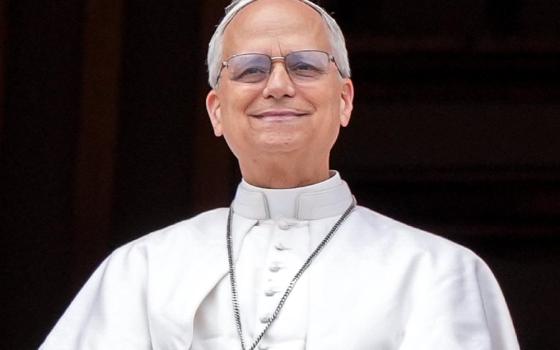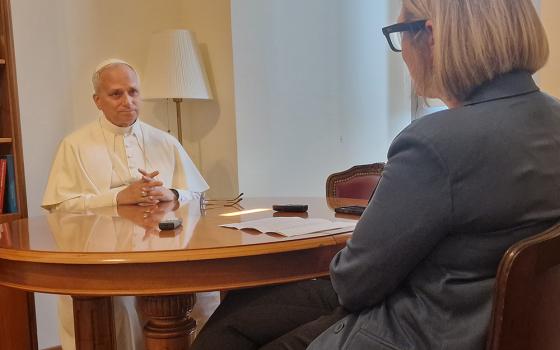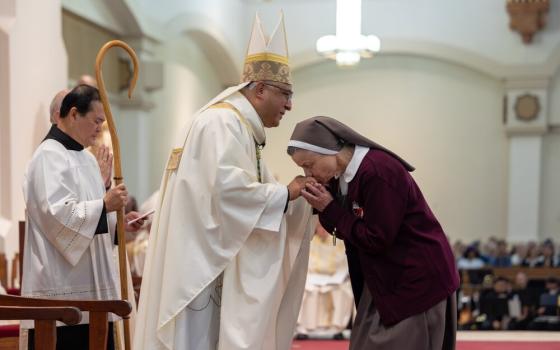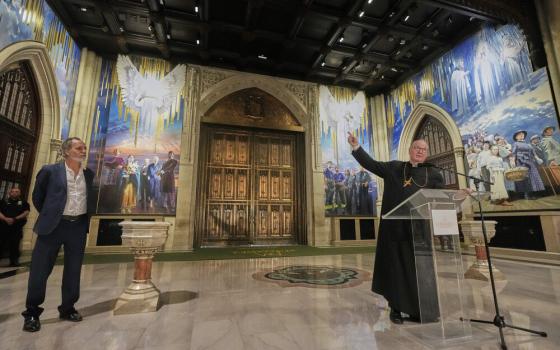
(Unsplash/John Crozier)
On this week's episode of "The Nonviolent Jesus Podcast," host John Dear marks the 80th anniversary of the U.S. atomic bombing of Hiroshima and Nagasaki by reviewing what Dear calls the "most radical, political, revolutionary words in the entire Bible."
Jesus' central command to "love your enemies" is in the climax of the Sermon on the Mount (Mt. 5:43-48).
"You have heard that it was said, 'You shall love your countrymen and hate your enemy.' But I say to you, love your enemies and pray for those who persecute you that you may be sons and daughters of your heavenly God, for God makes his sun rise on the bad and the good and the rain to fall on the just and the unjust."
"These are the most radical, political, revolutionary words in the entire Bible, and the most profound spiritual teachings ever taught in human history," said Dear. "We know historically that no one ever wrote these words before this time. For the last 1,700 years, we Christians have done our best to pretend Jesus never said them. My point: if we want to follow the nonviolent Jesus, and these words are his bottom line teaching, then we need to take them to heart, and figure out how to apply them concretely to our own day to day lives in this terrible moment of permanent war and global destruction."

(Unsplash/Dan Edge)
"Notice Jesus uses explicit nation/state language," Dear said. "He is not referring to a disagreeable neighbor or a difficult boss or a mean relative. The enemy here refers to that nation which is under attack by your nation."
Dear said that over the past five decades, North Americans have waged war with the people of Vietnam, El Salvador, Nicaragua, Guatemala, Panama, Grenada, Iraq and Afghanistan.
"Jesus would want North Americans not only to stop the wars against these people but to actively love these people," Dear said. "We cannot love people and at the same time wage war against them."
Jesus' commandment outlaws war, war preparations and the development of weapons of mass destruction, he said.
"He's trying to get us ready to enter God's nonviolent reign of universal love, so he instructs us to see beyond our borders and embrace every human being as a sister and brother, to live in peace with everyone, especially those threatened by our nation/state," Dear said. "Nowhere in the text does Jesus offer an exception. He does not say, 'Love your enemies, but if they're really hateful and violent, then you can kill them.' There is no exception, no justification, no permission for killing. Killing our enemies is completely forbidden, because we are commanded to love them with agape love."
Advertisement
Dear points out that God loves universally and that we are all children of God.
"Here in this one verse, Jesus describes the nature of God in the simplest, clearest terms — God loves every human being no matter what, and if you want to worship, serve, and be related to this God, you must do the same," he said.
"This image of a God of nonviolence is a breakthrough in human history," Dear continued. "It is the heart of Jesus' message and continues to be rejected. It challenges us to question our image of God. Is our God violent or nonviolent? Do we want the God of universal nonviolent love that Jesus tells us about? If we want to be sons and daughters of the living God, are we willing to practice the same universal nonviolent love as God and to accept the social, economic, and political consequences for our public stand?"







